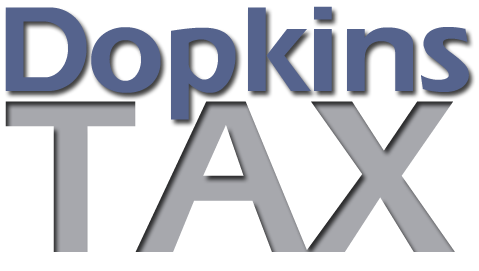4 Tax Law Changes of Note
December 3, 2015 | Authored by Dopkins Tax Advisory Group

New Filing Deadlines
- Partnerships. Tax returns will be due by the fifteenth day of the third month following the end of the tax year (by March 15 for a calendar-year partnership). Currently, the filing deadline for partnerships is the fifteenth day of the fourth month following the end of the tax year.
- C corporations. Tax returns will be due on the fifteenth day of the fourth month after the end of the tax year (by April 15 for a calendar-year corporation). Currently, the filing deadline for C corporations is the fifteenth day of the third month following the end of the tax year.
These filing deadline changes are generally effective for returns for tax years beginning after December 31, 2015 (for 2016 and later tax years). However, the filing deadline change for a C corporation with a June 30 fiscal year-end won’t apply until tax years beginning after December 31, 2025.
Filing Extensions
In conjunction with the filing deadline changes, Congress has also revised the filing extension periods available to various entities, effective for returns for tax years beginning after December 31, 2015. The new extension periods will be six months for a partnership return (Form 1065), five and a half months for a trust return (Form 1041), three and a half months for an employee benefit plan return (Form 5500), and six months for an exempt organization return (Form 990).
Inherited Property Requirements
In another change, executors of estates that are required to file federal estate-tax returns must furnish statements identifying the value of each property interest included in the gross estate. The statements must be furnished to the IRS and to each person acquiring a property interest included in the gross estate within 30 days after the estate-tax return’s due date, including extensions (or within 30 days after the return is filed, if the return is filed before the due date).
The new reporting requirement was scheduled to take effect for property interests included in estate-tax returns filed after July 31, 2015. However, for statements otherwise required to be filed with the IRS or furnished to beneficiaries before February 29, 2016, the IRS has extended the due date to February 29, 2016.
Higher Education Expenses
Under another provision, taxpayers claiming certain tax breaks for higher education expenses will be required to have a Form 1098-T (Tuition Statement) from the relevant educational institution. This requirement will apply for purposes of both the American Opportunity Tax Credit (AOTC) and the Lifetime Learning Credit (LLC). The AOTC is worth up to $2,500 annually (per student), while the LLC is worth up to $2,000 (per tax return).
The requirement to have a Form 1098-T would also be applicable for purposes of claiming the higher education expense deduction of up to $4,000, if Congress extends the deduction. (It expired after 2014.)
Earlier this year, the Treasury Inspector General for Tax Administration (TIGTA) reported that for 2012, more than 3.6 million taxpayers received approximately $5.6 billion in potentially erroneous education credits. Significantly, TIGTA found that over 2 million taxpayers received more than $3.2 billion in education credits for students with no Form 1098-T.
The new rule requires that taxpayers receive a Form 1098-T (containing all pertinent information) as a condition of claiming either the credits or the deduction (if the deduction is available). Receipt of the 1098-T by the dependent of the taxpayer will also satisfy the requirement. This change is effective for tax years that begin after June 29, 2015. Because most individual taxpayers report on a calendar-year basis, the new requirement will first apply to education expenses incurred during the 2016 tax year.
How significantly are you impacted by these changes? Contact your Dopkins Tax Advisor or email Robert Pollock at rpollock@dopkins.com for more information.
About the Author
Dopkins Tax Advisory Group
Our tax professionals include specialists who are proactive, strategic thinkers who work to maximize your cash flow. In addition to cash flow considerations, we also believe that tax planning is most effective when it is integrated with, and fully supports, your business plan and personal goals. Our approach to tax planning will help you better understand the tax implications of any proposed course of action, and together we can make the right decisions for your business. Contact us via email link below for more information. for more information contact your Dopkins Client Service Coordinator or Gregory Urban at gurban@dopkins.com

